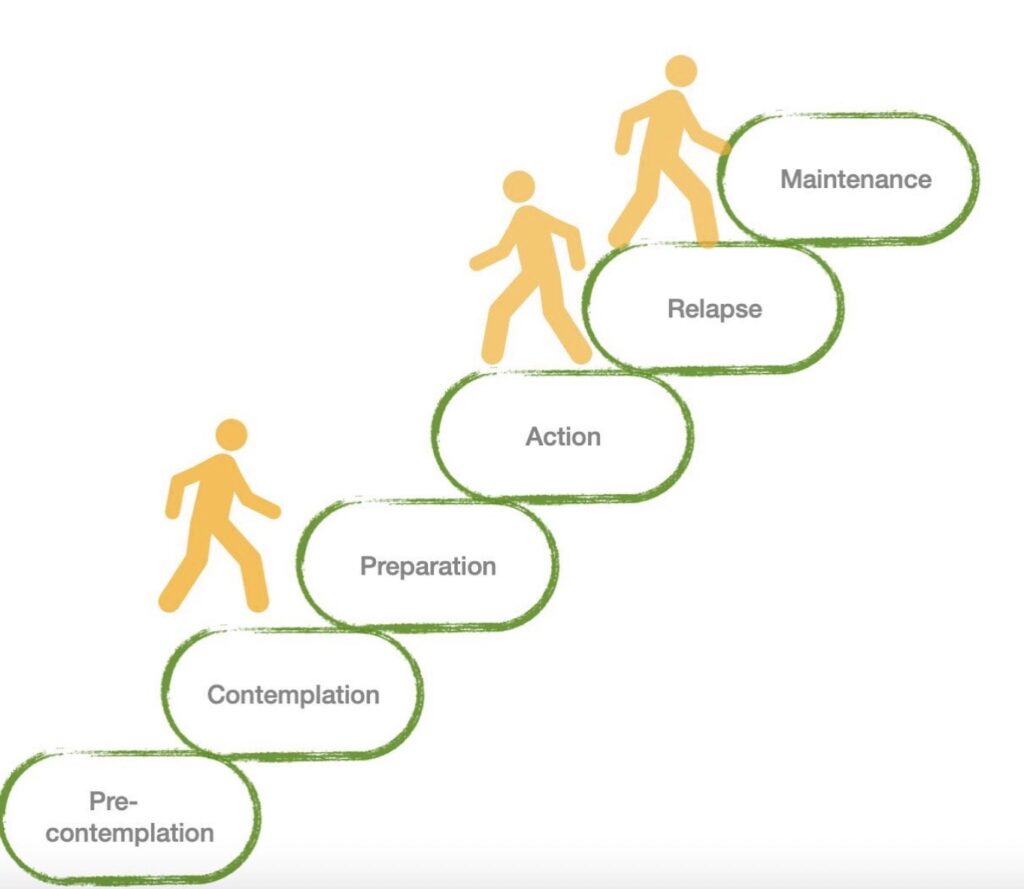Most people get so excited when they find something that works for them that they immediately want to share it with people they love and care about. We’ve all been there – the joy of discovering something beneficial, whether for health or personal growth, makes us eager to help our loved ones. However, the reality is that our good intentions are often met with defensiveness and rejection, leaving everyone frustrated.
So why is that this way and how can we do better?
First, let’s talk about the process of change. Change involves way more steps than just action steps. Acknowledging this reshapes our understanding of progress in the change process.
Let’s look at different stages.

Pre-contemplation: A person is not ready to change yet. They might feel the change is not necessary or they might see it as unachievable.
Contemplation: A person wants to make a change, but the cons of making the change outweigh the pros leading to ambivalence.
Preparation: During that stage, the pros of change outweigh the cons. People are ready to take action and begin creating a plan.
Action: People in this stage are implementing the change, but have not engaged in a new behavior for an extended period yet.
Maintenance: People are engaged in new behavior over an extended period.
Relapse can happen at any moment during the process of change. People make certain steps toward change, but something gets in the way and setbacks happen. It’s important to adopt a curious mind at that stage and not take it as a failure, but as a learning opportunity and get curious about ways to proceed with the change when things get in the way.
If you find yourself at a place where you want to share the tools or the insights you found helpful, consider where they might be in their journey. Clarify the role you wish to take on – whether as a coach, advisor or simply a supportive family member. Sometimes the most we can do is just to accept, create a safe and loving space for the people we love, and be the support that they need. If you believe you can assist in implementing change without jeopardizing your relationship, be mindful of the change process. Your help may range from being a good listener to being an accountability partner or sharing your helpful insights.
Remember, change is a process, and progress involves navigating through the various stages with understanding and patience.



